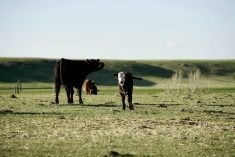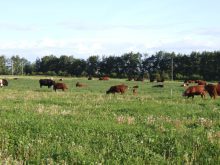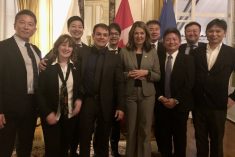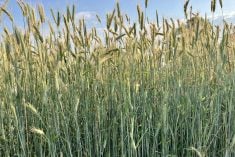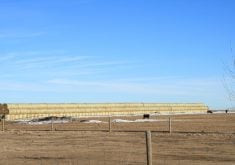Alltech Canada has awarded its inaugural Planet of Plenty award to Shipwheel Cattle Feeders of Taber, Alberta, as well as Burnbrae Farms, egg producers based in Ontario.
In a release, Alltech notes that the Planet of Plenty awards are meant to acknowledge “those who are furthering a world of abundance through nutritional and digital technologies, innovation and sustainable management practices in the agri-food sector.”
Today Shipwheel Cattle Feeders is run by Andrea Stroeve-Sawa, Trevor Sawa and their family. Stroeve-Sawa is the fourth generation of the Holtman family to manage the business, which includes a yearling grazing program, 5,500 head feedlot, cropland, bees, pasture-raised chickens and compost production.
Read Also
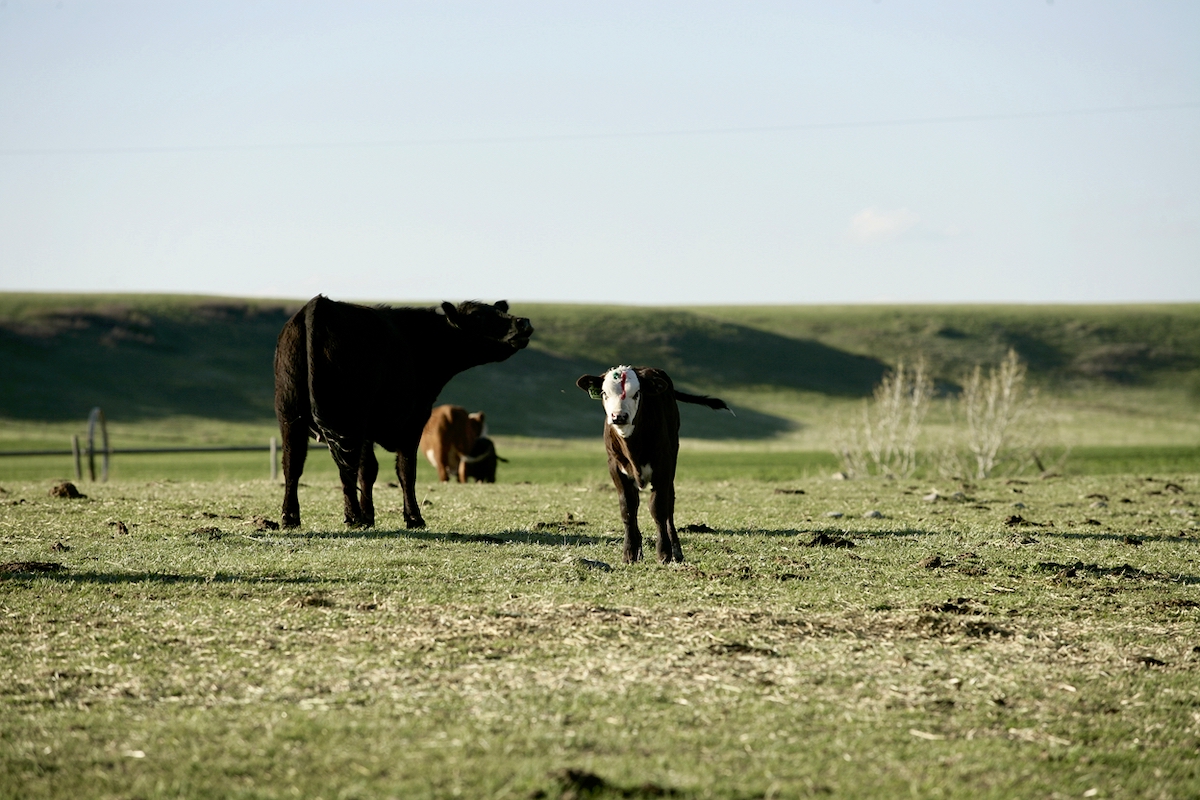
Body condition, nutrition and vaccination for brood cows
One of the remarkable events of the past century related to ranching has been the genetic evolution of brood cows….
Alltech’s release notes that management decisions at Shipwheel are “made through the lens of their holistic goal.” Shipwheel was an early adopter of holistic grazing. Stroeve-Sawa’s father, Blake Holtman “stumbled upon” Allan Savory’s grazing methods and decision-making tools at a conference in Phoenix, Arizona in 1979, the company’s website notes. Holtman then took a workshop with Savory and Stan Parsons in 1980. After the workshop, he began planning and monitoring Shipwheel’s grazing system, and converted the continuous grazing system into three grazing cells and 65 paddocks. Holtman soon noticed improvements to grass production, the land and cattle.
As part of the transition process, Stroeve-Sawa took over the managed grazing in 2013, breaking the 10-acre paddocks into thirds so the yearlings could graze them more evenly when the forage was growing quickly, notes a 2017 Canadian Cattlemen article. The holistic grazing allows the family to stock at higher rates while still improving the soil and forage growth. Composting manure is also a good fit for the area because of high-value crops and relatively few feedlots in the area. Shipwheel is also committed to low-stress livestock handling, which Stroeve-Sawa’s husband, Trevor, has a particular passion for.
Stroeve-Sawa is speaking during a sustainability workshop on June 22, as part of Alltech’s ONE Ideas conference.



